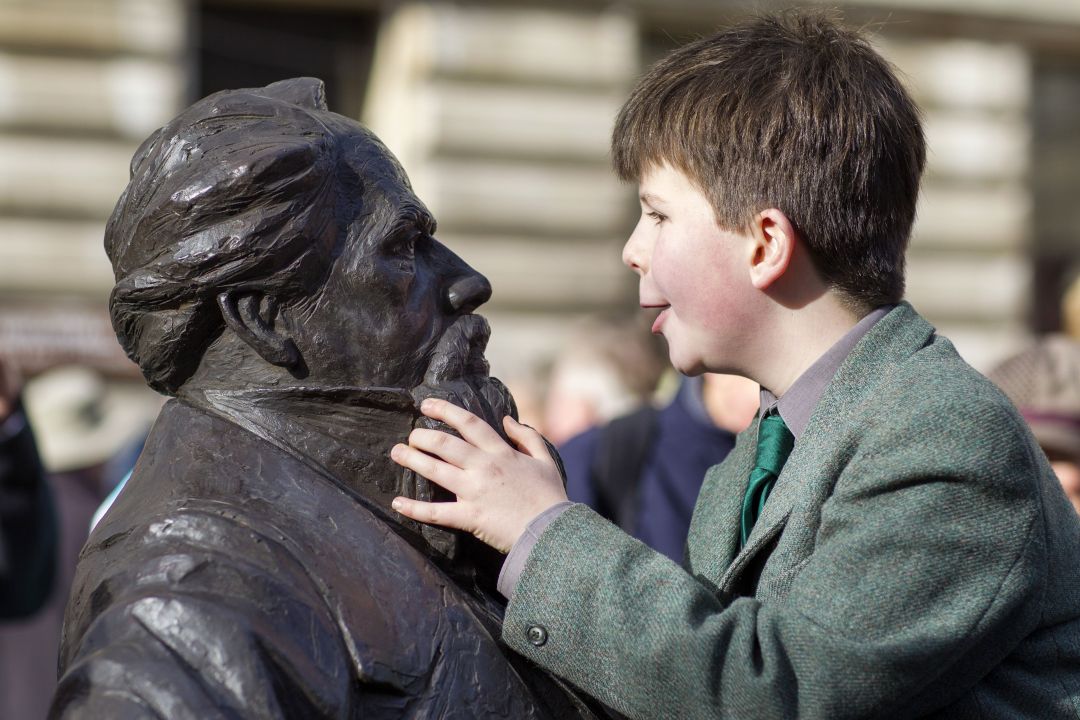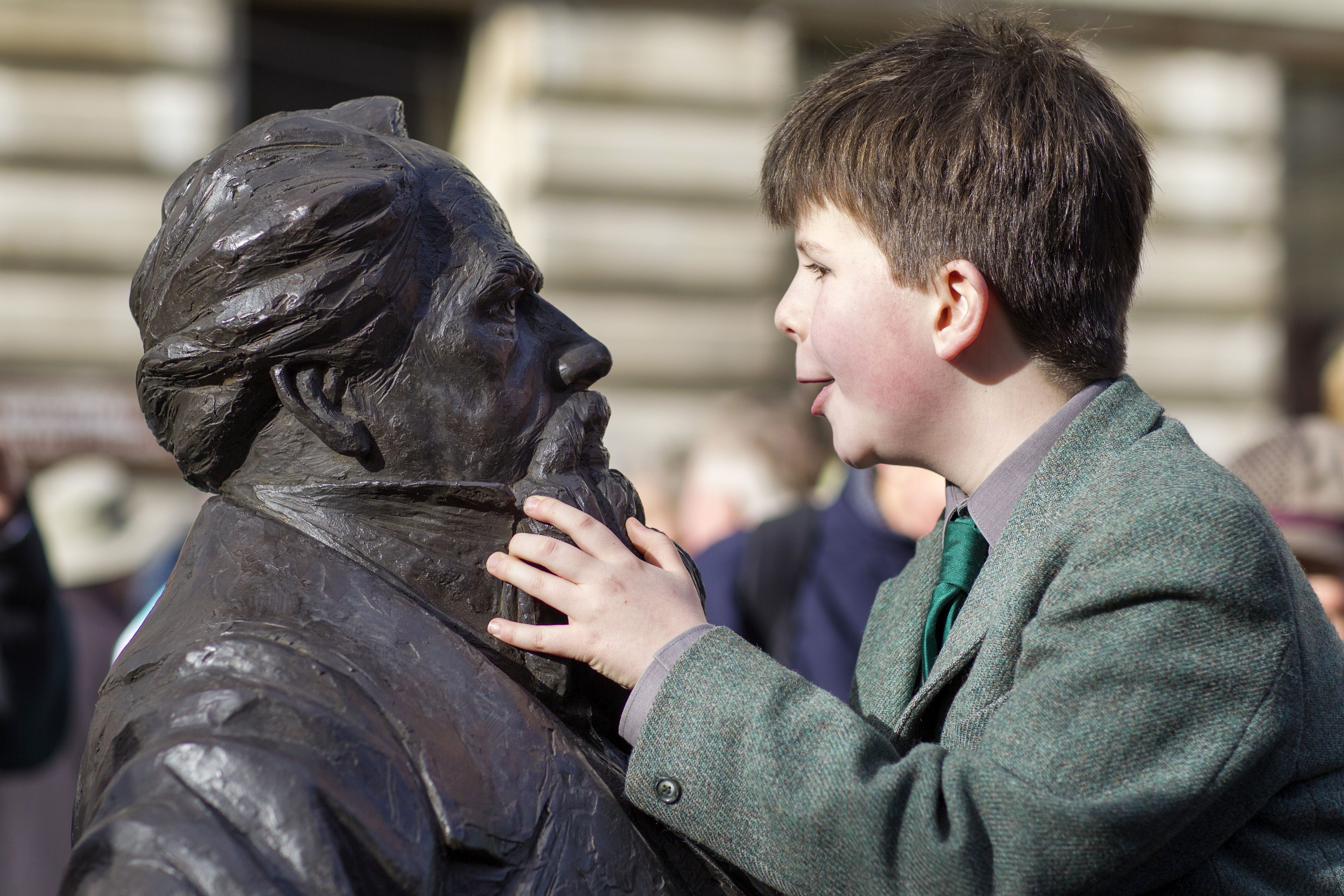Max Ross/Marcel Proust Marcel wastes all his time dreaming; time, I’m afraid, he will never get back. In History, Geography and Science lessons his eyes glaze over and he seems to enter a world of his own. Lengthy compositions are beyond him; he cannot elaborate and his responses to questions involve the bare minimum, though what he writes shows he is not unintelligent. How to make use of that intelligence is a challenge and I have frequently urged him to give detail, detail, detail but with no success. Marcel is never going to commit himself to any undertaking that calls for him to sacrifice time. He has been told that his dreaming will produce nothing; he is hardly likely to stun the world by contemplating the contents of a tea cup. When offered such advice he gives a wry smile as though a boy knows more than his tutor. Time will tell.
D.A. Prince/Emily Dickinson Emily has made some progress this year and I am pleased that she taken to joined-up (cursive) script at last. However, she still struggles to form her thoughts into full and meaningful sentences; conjunctions continue to be a problem for her, and too often she contents herself with a dash as a substitute. I fear this may indicate an underlying laziness and disinclination to write. She cannot extend her written work, at present, beyond the equivalent of short paragraphs. Unless she can develop greater intellectual stamina, and engage with the business of writing consecutive sentences, correctly punctuated, I fear she will not perform to advantage in public examinations. This would be a disappointment to everyone concerned, and I suggest that Emily is prepared, gently, to consider that future employment which includes setting down words on paper might not be in her best interests. To this end I propose encouraging a broader engagement with healthy, outdoor pursuits.
Frank McDonald/Irvine Welsh As a ten-year-old Irvine is displaying a worrying interest in filth and one suspects pornography is a theme in his role as playground raconteur. Though he maintains, with his characteristic grin, that he has a huge interest in birds there is little evidence of any knowledge of ornithology in his Nature Study tests. His handwork is above average and he will happily work with glue in a most imaginative way. He takes a keen interest in local history and perhaps this can be channelled into something positive. He is a stranger to the dictates of English grammar and resolutely refuses to have his spelling corrected. His essays have the dullness of reheated cabbage. If he is not to go off the rails completely it is recommended that he take an interest in some quieter pursuit. Trainspotting might be the making of him.
Mike Morrison/T.S. Eliot Thomas has proved to be a diligent pupil, albeit inclined to obsess over certain subjects while showing scant regard for others. His intellectual development is remarkable for a 12-year-old: he reads both widely and assiduously. The history teacher has observed in him a penchant for all things English, to the extent of feigning a form of Received Pronunciation, much derided by his peer group. Thomas is a diffident boy, reluctant to radiate his personality, preferring instead to hide behind himself. I cannot decide whether this is Midwest gaucheness or unbecoming hauteur. Morbid introspection in one so young is not, in our opinion, a healthy propensity. Much as his love of poetry should be encouraged, it is rarely the path to prosperity. Careerwise, we feel he would flourish in a milieu conducive to and admissive of furtive alienation, such as finance or publishing.
Katie Mallett/Charles Dickens Master Charles Dickens seems to have a good grasp of the English language as to grammar, and does show a great deal of creativity and ingenuity in his essays and exercises. However, it must be said that his attention to detail is somewhat overwhelming. Although the reader knows exactly who or what Master Dickens is writing about there is very little left to the reader’s imagination. The purpose of writing is to lead the reader’s thoughts in a certain way, surely not to grab him by the scruff of the neck and hurl him headlong into the scene of the narrative. It has also been noted that he has a tendency to dwell on the negative aspects of our wonderful nation under Queen Victoria. One hopes that should he choose to write as a career that he would not feel it necessary to continue portraying life in such a way.
Your next challenge is to recast a well-known scene from literature to reflect the fact that its author has signed a sponsorship deal with a well-known brand. Please email entries of up to 150 words to lucy@spectator.co.uk by midday on 16 September.






Comments